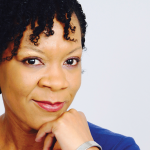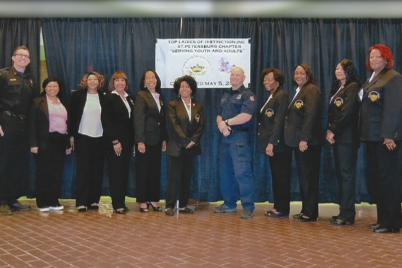Gail Pankey-Albert made history when she became the first African-American female New York Stock Exchange (NYSE) seat holder in 1981.
BY KEISHA BELL | Visionary Brief
There is a saying: “When you know better, you do better.” Often, people want better, but for whatever reason, they simply do not know how to obtain the knowledge to do better.
This is one of the reasons why the idea of having mentors and coaches is so important. Still, effective matches are not always guaranteed. How can she do better? Sometimes, the answer resides in being propelled by her inner drive.
Meet Gail Pankey-Albert, who made history when she became the first African-American female New York Stock Exchange (NYSE) seat holder in 1981. She was representing York Securities, a discount brokerage house.
Interestingly, Pankey-Albert’s childhood dream was to attend college. Education has always been important to her, and she believed it could help her get out of poverty. Her parents, however, could only afford to send one of their three children to college. She was not that one.
Instead of tossing in the towel, Pankey-Albert readjusted her plan on how she would achieve a better life. Her inner drive would not let her settle. She was determined not to remain in Brooklyn’s Fort Greene neighborhood, and she knew that she could not afford to wait for an opportunity to come to her.
In preparation for life after her high school graduation, Pankey-Albert interviewed with the NYSE. This courageous decision changed her life.
She graduated from high school on a Friday night. On the following Monday morning, she was reporting to work at the NYSE. By June of 1971, Pankey-Albert was working as a carrier there. Her responsibilities included traveling among traders and gathering computer punch cards that were then fed into the NYSE’s ticker system.
Her employer noticed her drive. It did not take long for her to be promoted to a squad messenger. That promotion put her on the trading floor, where she moved correspondence, stock quotes, and transactions between various members and their respective clerks.
At that time, the NYSE floor could be populated with 3,500 people at any given time. Only a few women were on the floor at all.
Between 1971 and 1981, Pankey-Albert worked for several Wall Street firms. By doing so, she maximized her professional value by obtaining professional credentials, securities and exchange licenses.
First, she was a computer operator. Next, she was an institutional clerk, and later, she was an elected floor official. Pankey-Albert learned from her more senior colleagues, people who took the time to help guide her.
By 1981, Pankey-Albert was ready and made history. She was met with well-earned respect and intense hostility for doing so. Everyone was not a fan, but she handled her circumstances well.
Pankey-Albert continued to excel. At one point, she was vice president and director of floor operations for Fahnestock and Co. Inc. Eventually, she successfully launched her own institutional trading firm.
To the surprise of some, her inner drive began to take her in a completely different direction after a 30-year affiliation with Wall Street. In March 2001, she closed her firm. In 2006, she enrolled in Thomas Edison State University.
Pankey-Albert finally achieved her childhood goal of earning a college degree when she graduated in 2010. As a result, she developed an interest in helping adult learners achieve their academic goals.

Keisha Bell
Pankey-Albert is a reminder that inner drive provides fuel to accomplish mind-blowing feats, as well as to achieve childhood dreams — especially if you are open to the possibility of life’s non-conventional order.
Keisha Bell is an attorney, author, and public servant. www.emergingfree.com







